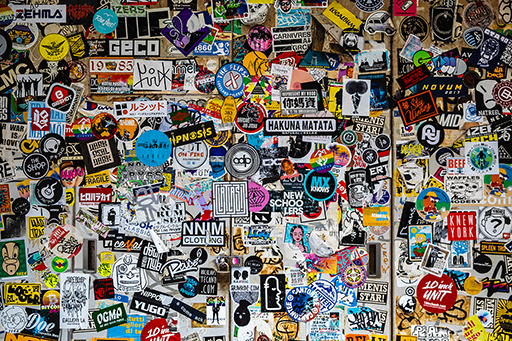3 Youth, sub-cultures and resistance
Since the end of the Second World War in 1945, youth sub-cultures have been significant features of society in the UK. You can probably think of some. There were Teddy Boys in the 1950s, then Mods, Skinheads, Hippies, Punks and Ravers in the 1960s, 70s, 80s and 90s. Most of these sub-cultures were largely composed of young white people. In the Noughties (2000s), the Grime scene, originating amid London’s black communities but spreading quickly across the UK, became influential. In 2012, the London Olympics opening ceremony featured Dizzee Rascal, a young black man from south London’s Grime scene. Dizzee Rascal’s ‘Sirens’ is an evocative account of his interactions with the police as a younger man. Like many of his predecessors, he has recorded music that tells his story and it is one in which the police, race, racism and resistance have always been a significant feature. His songs are stories but they are based on reality. This continues today, with young black men like Stormzy, Slowthai and Dave making the transition from sub-cultural legend to wider national recognition.
The following activity invites you to find and listen to and consider some of the contributions of youthful black artists to popular culture.
Activity 4 Voices of experience, musical truth
Use an internet search engine to find and listen to performances of any or all of the following. Use the artist’s name and song title as a search terms:
- Peter Tosh – Here Comes the Judge
- Smiley culture – Cockney translation
- Linton Kwesi Johnson – Sonny’s lettah
- Benjamin Zephaniah – Dis Policeman Keeps On Kicking Me to Death
- Dave – Black
- Macka B – We’ve had enough
- Dizzee Rascal – Sirens
- KRS1 – Sound of da police
- P Money – Stereotype
If you can think of other songs on a similar theme, write them down here.
Discussion
Music and stylings that originated in the Caribbean islands such as Rocksteady, Ska, Bluebeat, Mento and Calypso crossed the Atlantic with the Windrush generation of migrants to the UK in the 1950s. By fusing aspects of European, American, African and indigenous Caribbean music into new forms, the Windrush migrants started a process that has immeasurably enriched the cultural life of the UK. The tradition of commenting on social and community affairs through music that was a feature of 1940s and 50s Calypso has continued to the present day in the samples you may have discovered in your internet search. These songs tell of young people’s experiences of policing and criminal justice in which race and racism are central rather peripheral.

